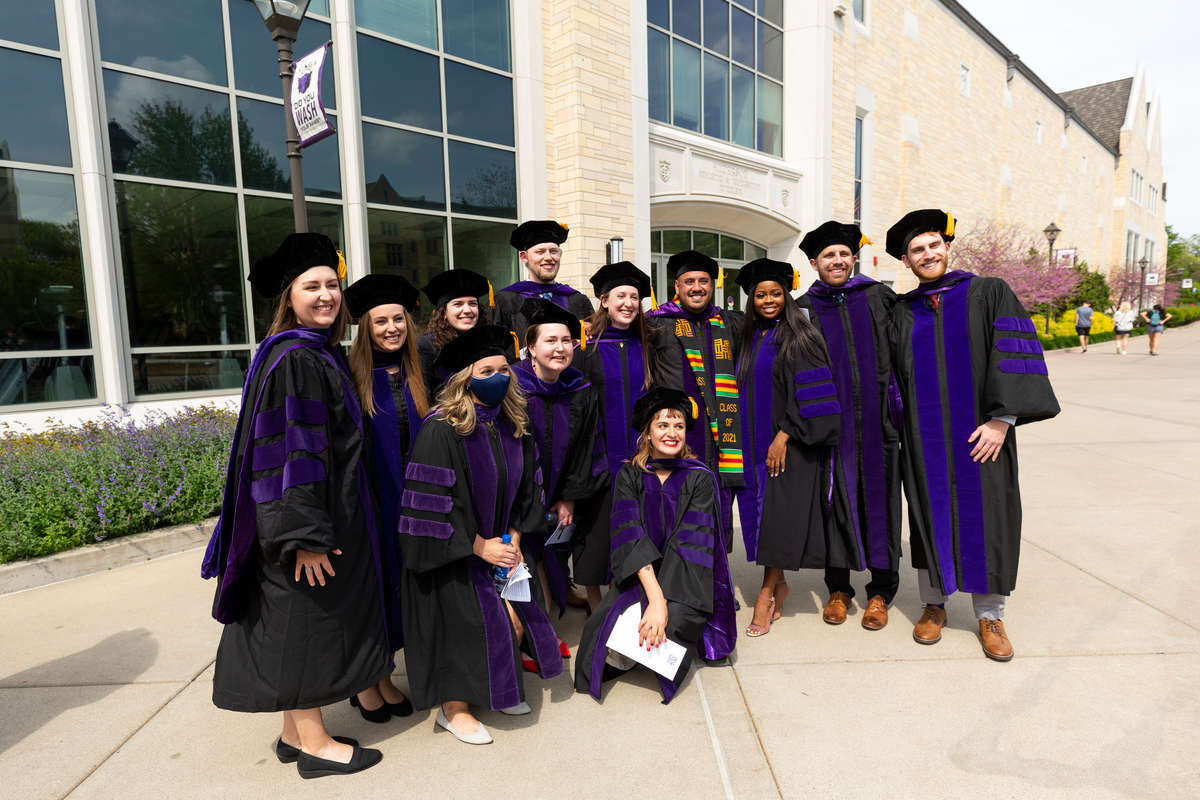St. Thomas Law’s Class of 2021 set a school milestone for the record high number of graduates employed in “gold-standard” positions within 10 months of commencement. The law school recently reported that 92.3% of last year's graduating class is working in full-time, long-term jobs that either require a law license or for which having a J.D. provides a significant advantage to performing or obtaining the role.
The Class of 2021 employment rate places St. Thomas Law among the top law schools in the country for career outcomes. It ranks No. 37 nationally among the more than 200 accredited U.S. law schools.
- Harvard Law School: 92.9%
- Georgetown Law School: 92.7%
- University of Minnesota Law School: 92.5%
- St. Thomas School of Law: 92.3%
- Boston College Law School: 90.8%
- Notre Dame Law School: 89.7%
- Marquette University Law School: 88.5%
“Early in our history as a law school, some prospective students would express enthusiasm about our mission but wondered whether attending St. Thomas Law meant sacrificing some of the stellar job prospects that could be found at law schools that had been around for 100 years,” Dean Robert Vischer said. “We have worked very hard to build a law school community that delivers a mission-centered student experience and employment outcomes that meet or beat those found at Harvard, Stanford, Georgetown, or Notre Dame. Being faithful to our mission can never be an excuse to relax our commitment to excellence.”
Since it was founded, St. Thomas Law has been dedicated to developing impact-ready lawyers through a focus on professional formation, mentorship and practical training. It has also worked to establish and continually improve its comprehensive approach to helping students gain meaningful employment, while responding to the needs of employers and the changing legal jobs market.
St. Thomas Law’s employment model is a schoolwide initiative. Multiple law school offices and programs, with the Career and Professional Development Office serving as coordinator, support students through an employment journey that focuses on their individual interests and aspirations. An example is the three-year Roadmap program, which was developed at St. Thomas and is used by law schools throughout the country. Through the program, students set goals, map out their career journey and engage with lawyers, judges, faculty and staff in one-on-one coaching sessions.
“Students come to law school for a variety of reasons and with different goals in mind,” Director of Career and Professional Development Monica Gould ’04 J.D. said. “Staff and faculty throughout the law school work hard to ensure experiential learning opportunities, from mentor pairings to externship placements, support each student’s career journey.”
The law school has responded to the needs of employers and the legal services industry by adapting its curriculum and programs to better prepare graduates for legal careers. Recent changes include the addition of Business Basics for Lawyers, a Foundations course for first-year students that introduces them to key financial and business aspects of organizations.
“Our employment results are a reflection of our students’ hard work,” Associate Dean for External Relations Lisa Brabbit said. “But also that St. Thomas Law is developing lawyers with the professional skills, knowledge and work ethic desired by legal employers. Our graduates focus on building relationships with clients and colleagues, are committed to developing as legal professionals and understand the need to work in service to their communities.”
St. Thomas Law’s gold-standard employment rate over the past five years:
- Class of 2021: 92.3%
- Class of 2020: 81.2%
- Class of 2019: 84%
- Class of 2018: 84.2%
- Class of 2017: 82%







